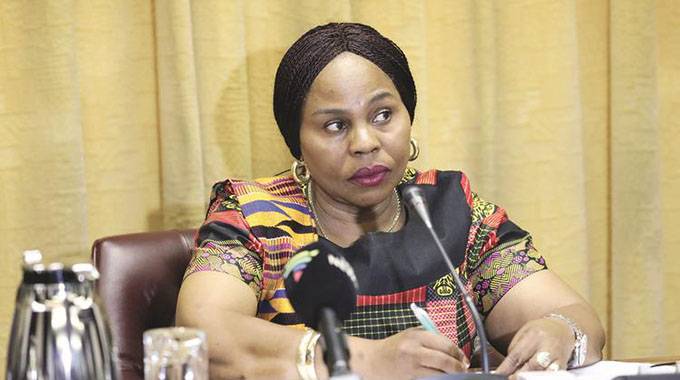Using cash attracts reasonable pricing
Though cash availability remains constrained, people using it are enjoying relatively lower prices than those using plastic money.
A visit to several shops in and around the Harare central business district (CBD) reveals that people are preferring to buy groceries in cash, because there is a huge difference between cash purchases and those done through plastic money.
One wonders where these people get the cash from when banks are only issuing $300 per week . . .
Goods sold at tuckshops using cash are way cheaper than those at big retail outlets, which accept plastic money.
Cooking oil, for example, costs about $57 using cash at the tuckshops, while in big retail shops it costs $79 or more.
The prices are also being determined by the parallel market and cash dealers on the streets.
There are too many different prices for the same product to the extent that some think it is plausible for the Government to consider controlling prices.
Some retailers say power cuts forced them to increase the prices of their products because they have shifted from day production to night shifts since electricity is available during the night, mostly.
Those who use generators have to grapple with long fuel queues, while having to contend with fuel price increases, hence, prices move along with the prevailing situation.
Production costs have risen, leading to increases in the cost of many products.
President Mnangagwa has on several occasions accused businesspeople and other stakeholders of being insensitive and unpatriotic following recent price hikes of basic goods.
Joseph Mupanda, a cross-border trader said in most instances, prices in Zimbabwe are the same as those in South Africa.
He notes that fuel prices in South Africa are even higher.
“I think if salaries are increased, things will be back to normal,” said Mupanda.
“People in South Africa earn from at least R3 000, but their economy is stable. In Botswana it is the same. Their salaries are stable so the majority can afford basics.”
Businesswoman and tuck-shop owner Moreen Magahi said cash shortages were the reason why prices were erratic.
Defending their decision to increase prices, some members of the business community blame the difficulty of doing business in Zimbabwe on cash shortages.
In the costing models that have been done in the past, fuel has always caused an increase, though not major, but depending on what type of business one runs, it has a cost build-up in cost structures.
In a snap survey to gauge the cost of basic consumer goods at the end of February, prices of selected goods were now significantly higher than what they were in the first week of the month.
In an interview, Consumer Council of Zimbabwe (CCZ) executive director Ms Rosemary Siyachitema said: “Things are continuously going up while salaries remain stagnant.
“Why is the Government and the private sector waiting for things to go that way? Salaries are stagnant, while most goods are linked to black market rates. The same is true for fuel.”
Ms Siyachitema pointed out that the cost of living kept going up. Mobile charges, medical aid and funeral policy contributions have gone up as well in recent months. There is need for a robust intervention from the Government, but some doubt
the effectiveness of bringing back price controls.
Miss Chipo Gundani, an economist, said in the current situation, price controls will not be ideal. “Price controls do not work in practice and theory,” she said.
“There is need to address the supply side constraints to ensure industries produce and the market then sets its own prices.”
A few months ago, Confederation of Zimbabwe Retailers president Denford Mutashu told The Herald that there was price madness in the market.
“Price controls will be bad news for the country, considering the precedent set during the 2007-8 era,” he said.
Mr Mutashu said there was need for the country to produce more than what the market required in order to curtail high demand for goods.
“Most of the high prices resemble greed bordering on fictitious costing models adopted at dollarisation,” he said.
The Zimbabwean economy continues to face challenges owing to low production levels, as well as inflation and high black market exchange rates.–herald.co.zw








